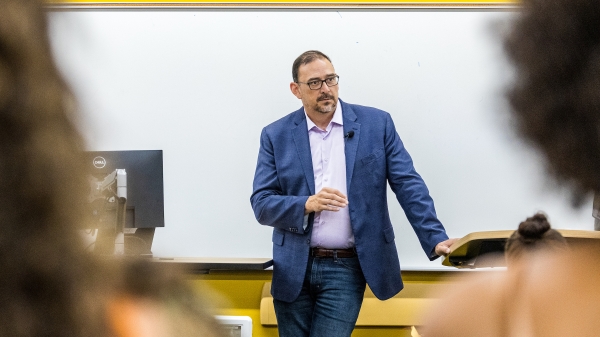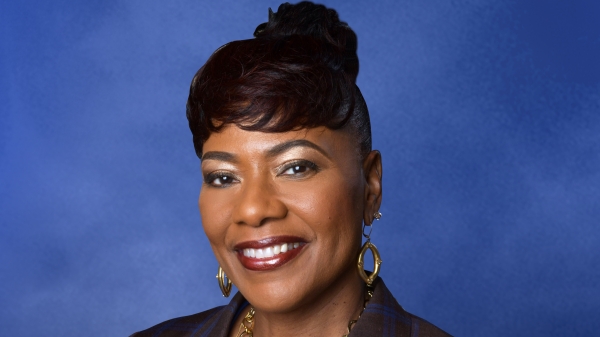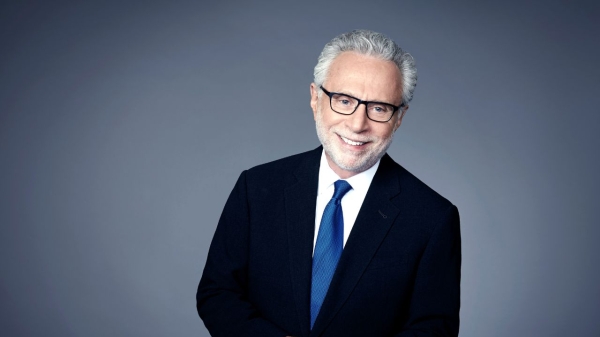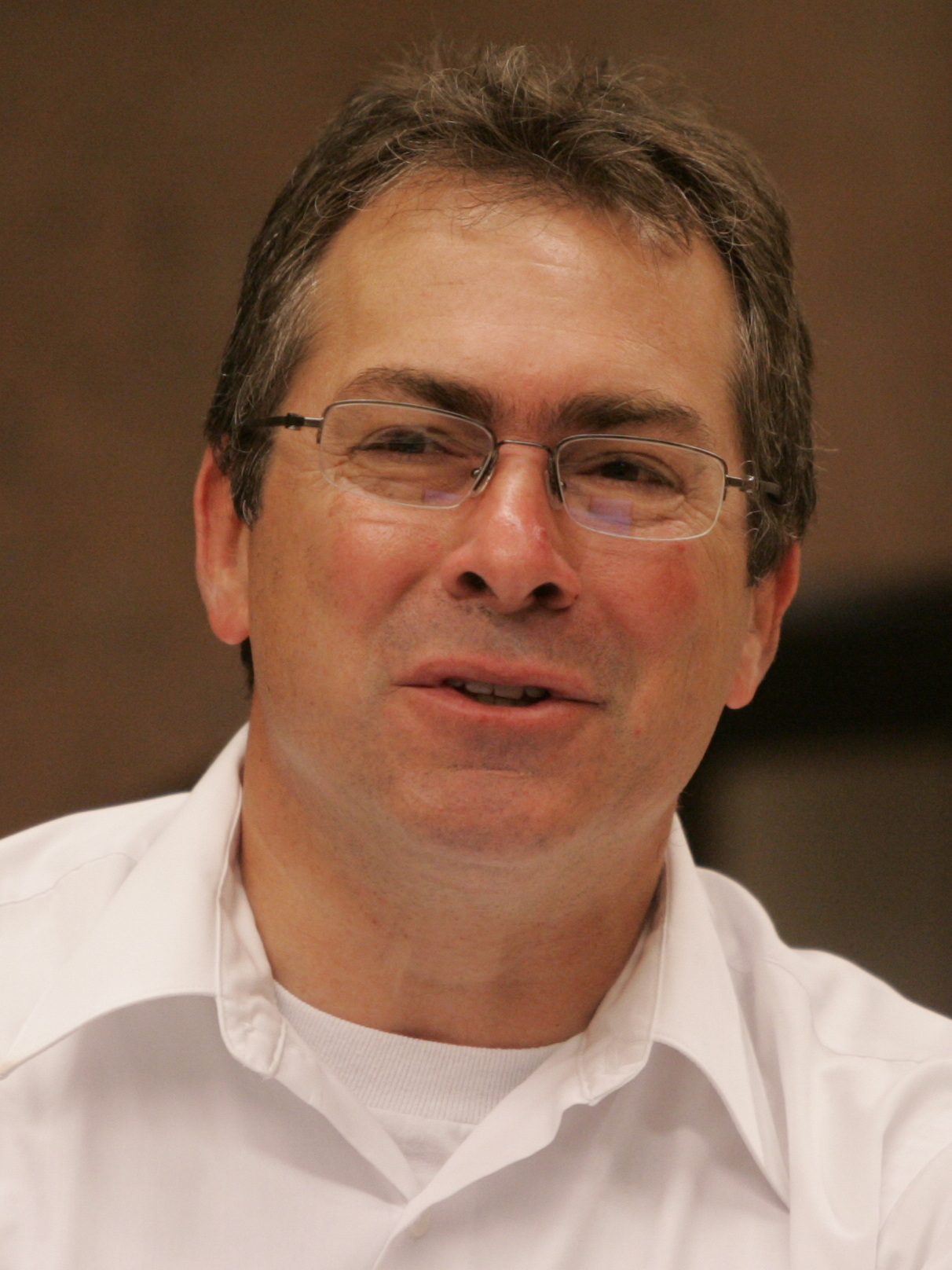Last year Steven G. Lisa had to suffer through seeing his father battle brain cancer.
But the patent attorney and Arizona State University law alum (JD ’84) was so impressed by the care his father received at the Barrow Neurological Institute that Lisa was compelled to unite the worlds of the Sandra Day O’Connor College of Law at ASU and Barrow Neurological Institute, which is part of Dignity Health St. Joseph’s Hospital and Medical Center in Phoenix.
Lisa (pictured at left) did so by underwriting innovation grants for the Institute’s neurosurgery residents. Of the three inaugural grants awarded, one has led to the creation of the Barrow Neuro-Innovation Center, which is now working hand-in-hand with ASU Law’s Lisa Foundation Patent Law Clinic to get new medical devices or techniques approved faster so they can help more people get through medical emergencies.
The Innovation Center, which features a 3-D printer for rapid prototyping, allows residents at Barrow to vet and develop innovations in surgical tools or techniques that would be useful in the field of neurosurgery. Providing initial legal evaluations for these innovations is the job of students in the law clinic as they work with Barrow neurosurgery residents from the early phases of development and prototyping to protecting their ideas by drafting provisional patent applications.
“It’s the students who are doing all the initial legal work for the Barrow group,” said Lisa, a patent-enforcement specialist whose law firm, Steven G. Lisa Ltd., has offices in Chicago and Scottsdale, Arizona. “I was very excited when our program with Barrow led to the creation of the Innovation Center, and it was a natural match to work together with the Lisa Foundation Patent Law Clinic. The Barrow group benefits because the residents receive instant feedback from our brightest students here at the law school. The students are excited because they are working with some of the smartest and most innovative neurosurgeons in the world — so it’s a clear win-win.”
Dr. Michael Bohl, a neurosurgery resident at Barrow, explained that the institute has a long history of being a leader in medical and surgical device innovation. However, the increasingly complex device development and patenting process threatens to curb that innovation.
“By collaborating with the Lisa Foundation and the ASU Patent Law Clinic, we have essentially eliminated those barriers,” Bohl said. “The Barrow Neuro-Innovation Center makes it possible for a neurosurgery resident to have a new idea, create a prototype, and begin working with the Lisa Foundation Patent Law Clinic on patentability and marketability within days."
The law clinic was founded in 2009 and over the years has received grants of $200,000 from the Lisa Family Foundation. Recently, the Lisa Foundation provided another $250,000 grant to continue the clinic’s work. Lisa also has served during this time as an adjunct professor at the law school, teaching a class on patent enforcement.
The clinic is open to patent-bar eligible ASU Law JD students, as well as to Master of Legal Studies – Patent Practice and patent-bar eligible Master of Laws (LLM) students because the U.S. Patent and Trademark Office requires only a science or engineering degree, not a law degree, to sit for the patent bar exam and become licensed to draft and file patent applications on behalf of clients.
Students in the Lisa Foundation Patent Law Clinic are under the supervision of licensed patent attorneys and receive hands-on experience in real-world patent prosecution, as well as the skills needed to recognize and obtain valuable and enforceable patents for clients that may later be successfully licensed or litigated.
Michelle Gross, director of the Lisa Foundation Patent Law Clinic and a Professor of Practice at ASU Law, said the students, along with herself or Lisa, meet once a month with the doctors and residents at Barrow. There, the residents present their ideas and the students gather data, answer questions, provide feedback and guide them through the patent process.
“A central purpose behind the relationship between the Barrow Neuro-Innovation Center and the Patent Clinic is to streamline the interaction between the innovation and patenting processes to relieve the burden on the Barrow group’s in-house Intellectual Property Office while ensuring that patent applications are drafted early and often in the development process to capture the valuable innovations of the residents,” Gross said.
Once the students draft the provisional patent applications, the Intellectual Property Office for Dignity Health, the parent company of St. Joseph’s, decides which projects will be forwarded for non-provisional patent applications that will be filed by their outside counsel.
Ken Ralston had made taking part in the Lisa Foundation Patent Law Clinic a goal when he started law school. Now in his second year, Ralston said working in the clinic and with Barrow has provided a trove of valuable experience.
“Working through the entire process brings a new experience at each step,” Ralston said. “This practical knowledge gained from handling a case at early stages has taught me the value of working closely with clients to best prepare an application. Having access to clients with such high technical knowledge and working with them on their inventions is a great opportunity that most law students do not have while in law school.”
For more information, contact Michelle Gross.
More Law, journalism and politics

Arizona secretary of state encourages students to vote
Arizona Secretary of State Adrian Fontes looked right and left, taking in the more than 100 students who gathered to hear him speak in room 103 of Wilson Hall.He then told the students in the Intro…

Peace advocate Bernice A. King to speak at ASU in October
Bernice A. King is committed to creating a more peaceful, just and humane world through nonviolent social change.“We cannot afford as normal the presence of injustice, inhumanity and violence,…

CNN’s Wolf Blitzer to receive 41st Walter Cronkite Award for Excellence in Journalism
Wolf Blitzer, the longtime CNN journalist and anchor of “The Situation Room With Wolf Blitzer,” will accept the 41st Walter Cronkite Award for Excellence in Journalism, Arizona State University has…

